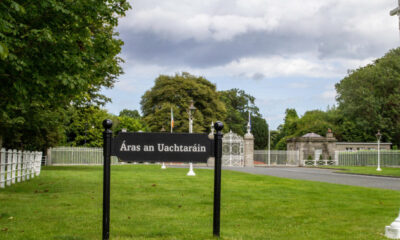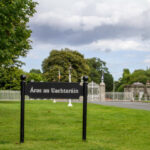Breaking News
Labour ‘shied away’ from immigration concerns, Starmer admits
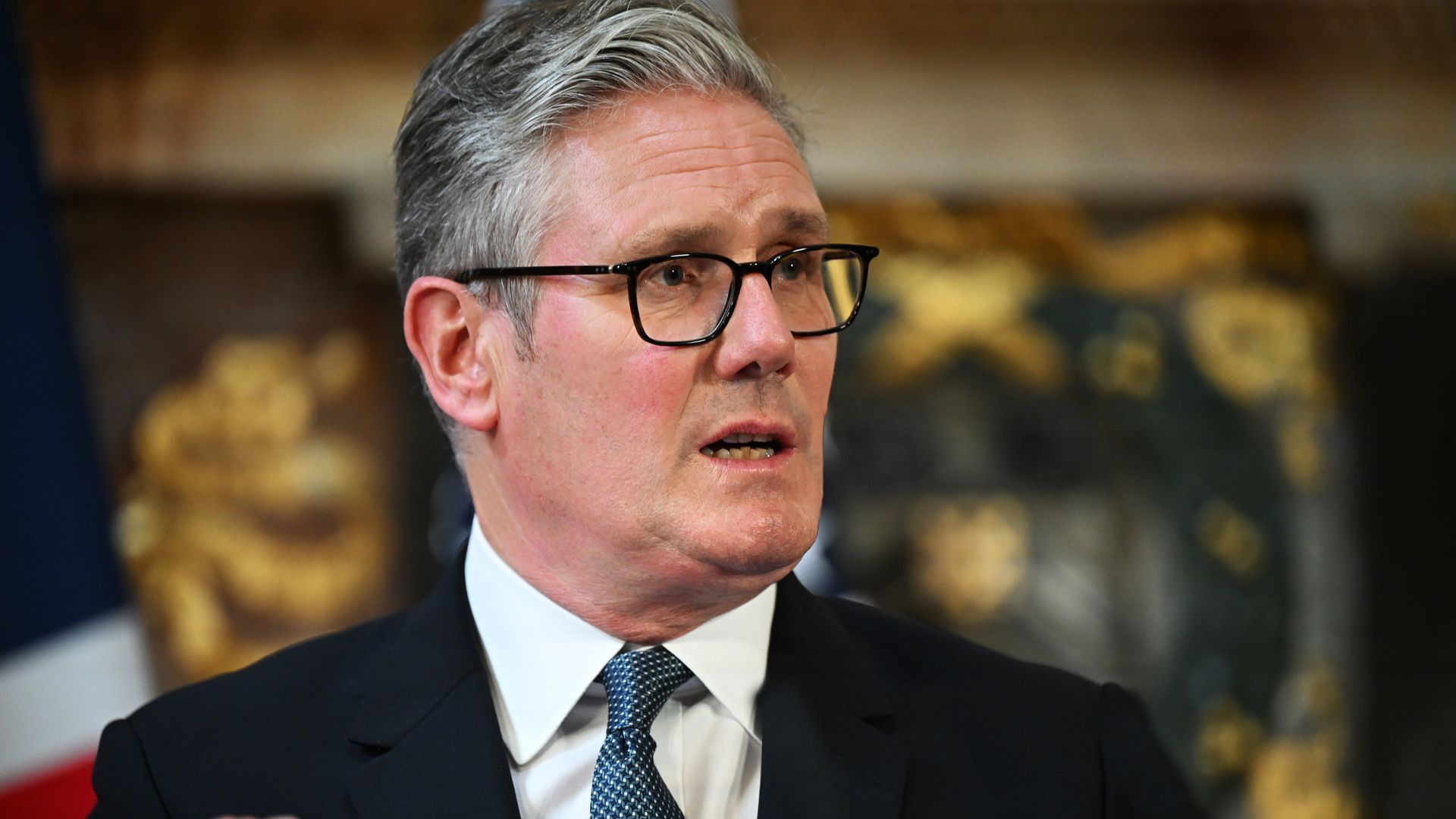
This post was originally published on this site.
Labour has previously shied away from addressing concerns over immigration, Sir Keir Starmer has admitted.
The prime minister wrote in The Daily Telegraph that it is now “essential” to tackle “every aspect of the problem of illegal immigration”.
“There is no doubt that for years left-wing parties, including my own, did shy away from people’s concerns around illegal immigration,” he wrote in the newspaper.
“It has been too easy for people to enter the country, work in the shadow economy and remain illegally.”
To address this problem, Sir Keir said that Labour will introduce a “free-of-charge” digital ID for adults that will be “mandatory for the right to work by the end of this parliament”.
The idea behind the so-called “Brit card” is that it would verify a citizen’s right to live and work in the UK.
The plans would require anyone starting a new job or renting a home to show the card on a smartphone app, which would then be checked against a central database of those entitled to work and live here.
It is hoped this would reduce the attraction of working in the UK illegally, including for delivery companies.
Read more: The pros and cons of digital IDs – and do we need them?
At the moment, workers have to show at least one form of physical ID in the form of documents, but there are concerns within the government that these can be faked.
Lack of ID cards major pull for illegal migrants
French President Emmanuel Macron has repeatedly warned that the lack of ID cards in the UK acts as a major pull factor for Channel crossings, as migrants feel they can find work in the black economy.
Sir Keir is expected to reveal more details about the “Brit card” in a speech at the Global Progress Action Summit hosted by think tank Labour Together, the Centre for American Progress Action Fund, and the Institute for Public Policy Research in London today.
“For too many years, it’s been too easy for people to come here, slip into the shadow economy and remain here illegally,” he is set to tell attendees at the summit.
Sir Keir will add: “It is not compassionate left-wing politics to rely on labour that exploits foreign workers and undercuts fair wages. But the simple fact is that every nation needs to have control over its borders.”
The Labour leader is expected to say that campaigners who think of themselves as progressive must look themselves “in the mirror” and identify areas where they have allowed themselves “to shy away from people’s concerns”.
Sir Keir’s ID card U-turn
The plan represents a shift in the government’s position, as last year ministers ruled out the idea following an intervention from Sir Tony Blair just days after Labour won the general election.
The former Labour prime minister has long been an advocate of ID cards and took steps to introduce a system that would begin as voluntary and could later become compulsory while in office.
Last July, then home secretary Yvette Cooper said of the idea: “It’s not in our manifesto. That’s not our approach.”
The rollout was scrapped after Labour was ejected from power in 2010, having been opposed by the Liberal Democrats and the Tories at the time.
The idea of ID cards has long been opposed by civil liberty and privacy groups in the UK.
Sir Keir is said to have shared their concerns but came round to the idea amid record-high levels of small boat crossings.
Read more from Sky News:
Two more deported under UK-France returns deal
Campaigners on why they oppose asylum hotels protests
A report by the Tony Blair Institute published on Wednesday said digital ID can “help close loopholes that trafficking gangs and unscrupulous employers currently exploit, reducing pull factors driving illegal migration to Britain and restoring control over borders”.
Labour Together, which has been backed by Sir Keir, published a report in June which said digital ID could play a role in right-to-work and right-to-rent checks, supporting “better enforcement of migration rules”.
The announcement has been met with criticism from civil liberty group Big Brother Watch, which said the introduction of ID cards would turn “us into a checkpoint society that is wholly unBritish”, and from Reform UK and the Tories, who argue the ID cards would not stop small boat crossings.
A petition demanding that the government not introduce digital ID cards has already reached half a million signatures.
Breaking News
Danish airport closes again after reported drone sighting
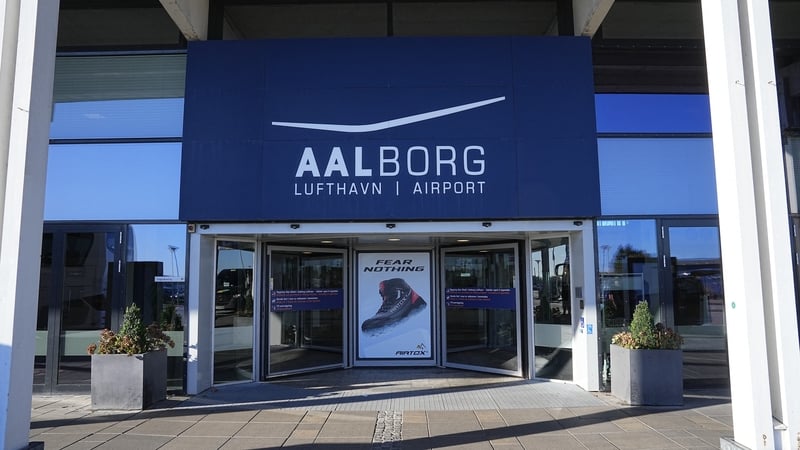
Read more on post.
A suspected drone sighting briefly shuttered a Danish airport this morning for the second time in a few hours, after the country’s prime minister said the flights were part of “hybrid attacks” that may be linked to Russia.
Drones have been seen flying over several Danish airports since Wednesday, causing one of them to close for hours, after a sighting earlier this week prompted Copenhagen airport to shut down.
That followed a similar incident in Norway, drone incursions in Polish and Romanian territory and the violation of Estonian airspace by Russian fighter jets, which raised tensions in light of Russia’s ongoing invasion of Ukraine.
“Over recent days, Denmark has been the victim of hybrid attacks,” Prime Minister Mette Frederiksen said yesterday in a video message on social media – referring to a form of unconventional warfare.
She warned that such drone flights “could multiply”.
Investigators said they had so far failed to identify those responsible, but Ms Frederiksen stressed: “There is one main country that poses a threat to Europe’s security, and it is Russia.”
Moscow said yesterday that it “firmly rejects” any suggestion that it was involved in the Danish incidents. Its embassy in Copenhagen called them “a staged provocation”, in a post on social media.
Denmark’s Justice Minister Peter Hummelgaard earlier said the aim of the attack was “to spread fear, create division and frighten us”.
He added that Copenhagen would acquire new enhanced capabilities to “detect” and “neutralise drones”.
Denmark will later today join other EU countries, mostly along the eastern border with Russia, in the first talks on proposals to build a “wall” of anti-drone defences in the face of the tensions with Moscow.
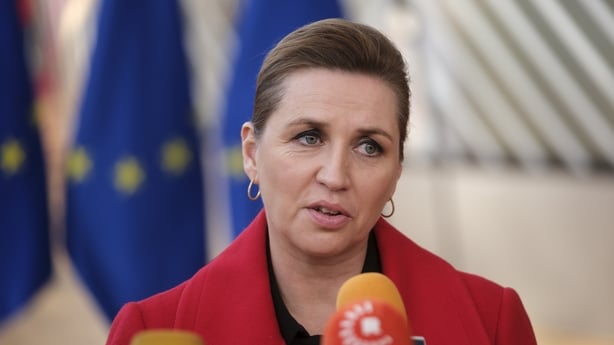
Drones have been seen flying over several Danish airports since Wednesday, causing one of them to close for hours, after a sighting earlier this week prompted Copenhagen airport to shut down.
That followed a similar incident in Norway, drone incursions in Polish and Romanian territory and the violation of Estonian airspace by Russian fighter jets, which raised tensions in light of Russia’s ongoing invasion of Ukraine.
“Over recent days, Denmark has been the victim of hybrid attacks,” Prime Minister Mette Frederiksen said yesterday in a video message on social media – referring to a form of unconventional warfare.
She warned that such drone flights “could multiply”.
Investigators said they had so far failed to identify those responsible, but Ms Frederiksen stressed: “There is one main country that poses a threat to Europe’s security, and it is Russia.”
Moscow said yesterday that it “firmly rejects” any suggestion that it was involved in the Danish incidents. Its embassy in Copenhagen called them “a staged provocation”, in a post on social media.
Denmark’s Justice Minister Peter Hummelgaard earlier said the aim of the attack was “to spread fear, create division and frighten us”.
He added that Copenhagen would acquire new enhanced capabilities to “detect” and “neutralise drones”.
Denmark will later today join other EU countries, mostly along the eastern border with Russia, in the first talks on proposals to build a “wall” of anti-drone defences in the face of the tensions with Moscow.
Russia sabotage warning
Drones were spotted on Wednesday and early yesterday morning at airports in Aalborg, Esbjerg, Sonderborg and at the Skrydstrup air base before leaving on their own, police said.
Aalborg airport, located in northern Denmark, was initially shut down for several hours, and closed again for about an hour from late last night into early this morning due to another suspected sighting.
“It was not possible to take down the drones, which flew over a very large area over a couple of hours,” North Jutland chief police inspector Jesper Bojgaard Madsen said about the initial Aalborg incident.
The head of Denmark’s military intelligence, Thomas Ahrenkiel, told a news conference the service had not been able to identify who was behind the drones.
But intelligence chief Finn Borch said: “The risk of Russian sabotage in Denmark is high.”
Danish Defence Minister Troels Lund Poulsen told a news conference the flights appeared to be “the work of a professional actor… such a systematic operation in so many locations at virtually the same time”.
He said it had posed “no direct military threat” to Denmark.
Ms Frederiksen said Thursday that she had spoken with NATO chief Mark Rutte about the incidents.
Lund Poulsen said the government had yet to decide whether to invoke NATO’s Article 4, under which any member state can call urgent talks when it feels its “territorial integrity, political independence or security” are at risk.
French President Emmanuel Macron said his country stood ready “to contribute to the security of Danish airspace”.
Copenhagen is set to host a summit of European Union leaders next week.
Breaking News
School scanners for pupils thought to have weapons

Read more on post.
Anna LewisBBC Wales
Handheld scanners will be used to search children suspected of having a weapon in Cardiff schools under new guidance.
The guidelines, which are thought to be the first of their kind in Wales, deal with what happens when a child is thought to be carrying a weapon, and the next steps if one is found.
Cardiff council said it had been designed after calls by head teachers for up-to-date advice to keep students and staff safe, following growing concerns about knife crime in schools.
Sarah Merry, the council’s cabinet member for education, said while she understood parents “may feel anxious about the idea of searches”, they would not be part of a daily school routine or “done lightly”.
In 2013, the Welsh government introduced a power which allowed schools in Wales to screen pupils for a knife or other weapons, and to search pupils suspected of carrying a weapon.
New guidance sent to parents in Cardiff states a search may be necessary if staff have a “reasonable” suspicion that a young person has a weapon in school.
During a search, it added two members of staff would be present, and that in most cases a “search wand” would be used to remove any physical contact.
“Parents or carers will be informed following a search and the reasons for the search will be explained,” the guidance adds, with the purpose of the search also explained to the student.
Under the guidelines, if a weapon is found then an incident review meeting should be arranged within five school days of the incident with “at least one daily welfare check”.
The young person should not be allowed to go to school until this meeting has taken place, while a “trauma-informed investigation” would then take place to understand why the young people brought the weapon into school and the next steps that should be taken.
According to Cardiff council, the guidelines recognise “there are often complex reasons why a young person might carry a weapon” and encourages schools to work with families and other services so support can be put in place.
The guidelines have been rolled out to all primary, secondary and special schools after being developed through consultation with children, and co-produced with partners including South Wales Police, youth services and violence prevention experts.
Merry, who is also council deputy leader, said: “Head teachers have been asking for revised support in this area and it’s absolutely right that we’ve worked closely with them to create something practical and useful.
“It is also part of our review following incidents in other parts of the country and gives schools the tools they need to keep everyone safe – it’s not about creating fear; it’s about building confidence.”
As well as guidance on weapons, each school in Cardiff has appointed a violence prevention lead, who are senior staff members that will take part in specialist training to prepare them for real-life situations involving weapons or threats to safety.
Other actions taken to keep schools safe include lockdown rehearsals to help schools prepare for emergencies, and using the curriculum to “build a culture of respect and safety”.
Breaking News
Tánaiste discusses Irish-US economic ties in Washington
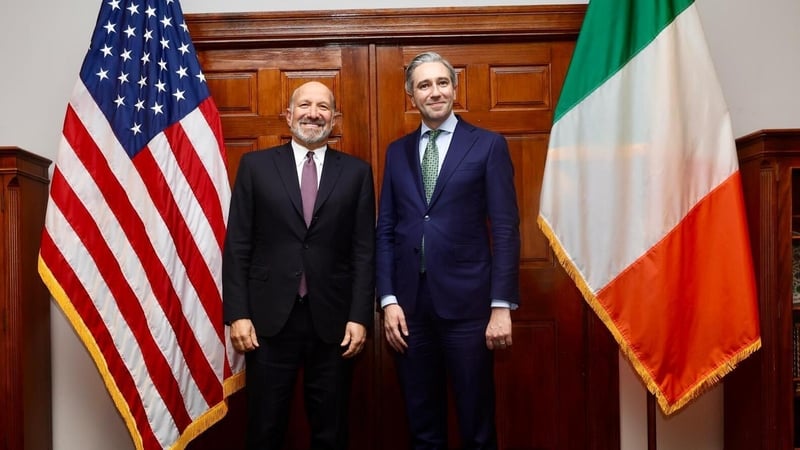
This post was originally published on this site.
Tánaiste Simon Harris has met with US Secretary of Commerce Howard Lutnick in Washington DC.
The meeting at the Department of Commerce was an opportunity to discuss the dynamic economic, trade and investment relationship between Ireland and the US.
It was also a chance to take stock on the implementation of the EU-US Framework on an Agreement on Reciprocal, Fair and Balanced Trade agreed in July.
They discussed the potential of expanding the list of goods that are exempt from the baseline 15% tariff rate.
Ireland has a particular interest in this as it relates to the spirits and med-tech sectors. They also discussed the issue of non-tariff barriers as well as the ongoing Section 232 investigations on pharmaceuticals and semiconductors.
They exchanged views on the impact of the expansion of the Section 232 measures on certain steel and aluminium given the impact of these on a number of Irish manufacturers, particularly in the agri-tech sector.
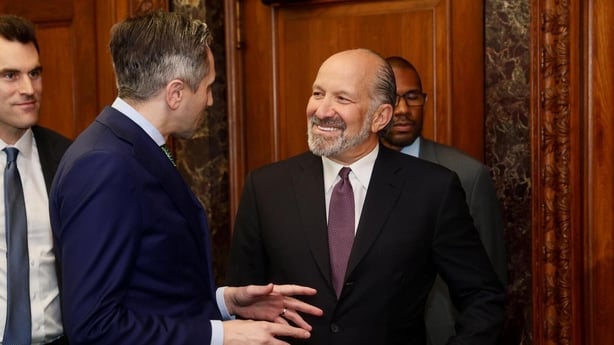
Mr Harris raised the recent proposal by the US to raise the cost of H1B visas applications, and noted the importance of pathways for high-skilled workers, innovators and job creators to live and work in the US.
More broadly the meeting was an opportunity to discuss the mutually beneficial economic relationship between Ireland and the US, and how it can be protected and deepened in the time ahead.
The Tánaiste took the opportunity to update Mr Lutnick on the economic impact report: Ireland and the USA: a shared economic story – which he launched.
The report shows the impact of Irish companies investing across all 50 states.
-
Culture3 days ago
Taylor Swift’s new cinema outing generates more than €12million in just 24 hours
-
Politics3 days ago
European Parliament snubs Orbán with vote to shield Italian MEP from Hungarian arrest
-
Health4 days ago
EU renews support for WHO’s Universal Health Coverage Partnership
-
Culture3 weeks ago
Life, loss, fame & family – the IFI Documentary Festival in focus
-
Environment6 days ago
Key oceans treaty crosses threshold to come into force
-
Culture3 days ago
Twilight at 20: the many afterlives of Stephenie Meyer’s vampires
-
Culture2 months ago
Fatal, flashy and indecent – the movies of Adrian Lyne revisited
-
Culture1 week ago
Farewell, Sundance – how Robert Redford changed cinema forever







